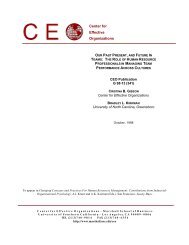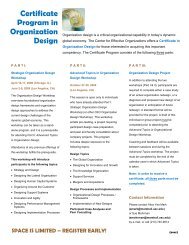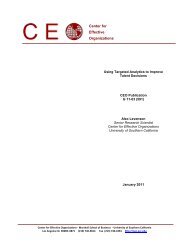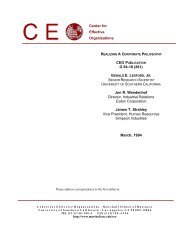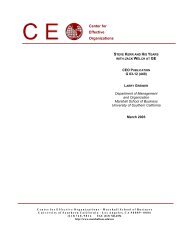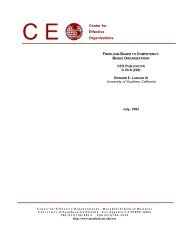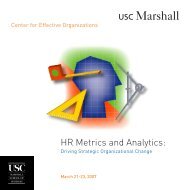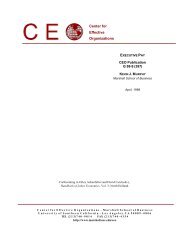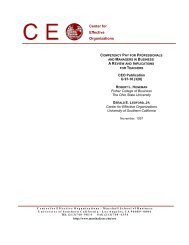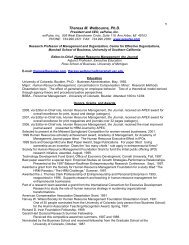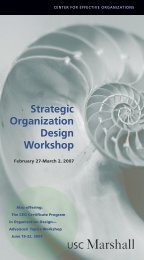Global Talent 2021 - Oxford Economics
Global Talent 2021 - Oxford Economics
Global Talent 2021 - Oxford Economics
- No tags were found...
You also want an ePaper? Increase the reach of your titles
YUMPU automatically turns print PDFs into web optimized ePapers that Google loves.
<strong>Global</strong> <strong>Talent</strong> <strong>2021</strong>How the new geography of talent will transform human resource strategiesRethinking HR strategies for the newglobal marketplaceA more analytical,evidence-based approachwill not only lead to betterHR results, but willgenerate greater supportfrom senior managementwho require soundbusiness cases formaking decisions.Business transformation and the new geography of talent will call for a fresh HRapproach and mindset. To manage the enormous change process, HR executiveswill need to use new analytical tools to understand and plan for the future, assessthe impact of decisions, optimize performance, prepare for different scenariosand align talent management with larger corporate strategies. A more analytical,evidence-based approach will not only lead to better HR results, but will generategreater support from senior management who require sound business cases formaking decisions.“For the last 15 to 20 years we’ve focused HR leaders on efficient delivery of services,”says Ravin Jesuthasan, <strong>Talent</strong> Management Practice Leader for the consulting firmTowers Watson and co-author, with Dr. John Boudreau of the Center for EffectiveOrganizations at the University of Southern California, of Transformative HR: HowGreat Companies Use Evidence-Based Change for Sustainable Advantage. “Todaythe opportunity is for HR to transform how firms manage talent, enabling businessleaders to make better decisions about human capital.” Integrating these new HRtools can help firms optimize their talent and boost employee performance.Building on the transformative principles outlined in this book, our research revealsfive important steps firms should take to retool HR for the changes ahead.1. Use more sophisticated analytical tools for making global decisions.Over the next three years, companies will increasingly rely on logic-driven analyticsto make better decisions about the supply and demand of talent. According to Dr.Boudreau, “under a logic-driven approach, firms should identify the most pivotalorganizational issues and use robust analytics to describe the issues and assess thelikely outcomes.” Best practice will entail the consistent use of analytics to generateinsights, test alternatives, monitor progress and measure business impact.As firms globalize, they will also need globally integrated HR data systems. Our surveyshows that the use of data from globally integrated HR information systems (HRIS) willrise from 39% to 47%, and from regional or divisional HRIS from 40% to 46%. Whileless than half of our survey respondents say their HRIS are integrated today, 63%say they will make this transition in the next three years. And while only 52% of firmstoday say they possess a “strong understanding” of the HR metrics that matter to eachbusiness unit, 65% of respondents expect this to be true in three years.More rigorous data analysis offers firms many benefits. For ATK, a global defense,aerospace and commercial products company headquartered in the US, analyticaltools are crucial for workforce planning. “Our data analysis allows us to be proactiveand forward-looking in recruiting,” says Carl Willis, Vice President for HumanResources in ATK’s sporting group. Such analysis lets him see “where the businessis going and what kind of talent we’re going to need in the future.”13OXFORD ECONOMICS



